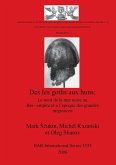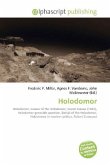High Quality Content by WIKIPEDIA articles! The Huns were a group of nomadic pastoral people who, appearing from beyond the Volga, migrated into Europe c. 370 AD and built up an enormous empire in Europe. They were possibly the descendants of the Xiongnu who had been northern neighbours of China three hundred years before and may be the first expansion of Turkic people across Eurasia. The origin and language of the Huns has been the subject of debate for centuries. The leading current theory is that their leaders at least may have spoken a Turkic language. Their main military technique was mounted archery. The Huns may have stimulated the Great Migration, a contributing factor in the collapse of the Roman Empire. They formed a unified empire under Attila the Hun, who died in 453; their empire broke up the next year. Their descendants, or successors with similar names, are recorded by neighbouring populations to the south, east, and west as having occupied parts of Eastern Europe and Central Asia roughly from the 4th century to the 6th century. Variants of the Hun name are recorded in the Caucasus until the early 8th century.
Bitte wählen Sie Ihr Anliegen aus.
Rechnungen
Retourenschein anfordern
Bestellstatus
Storno








